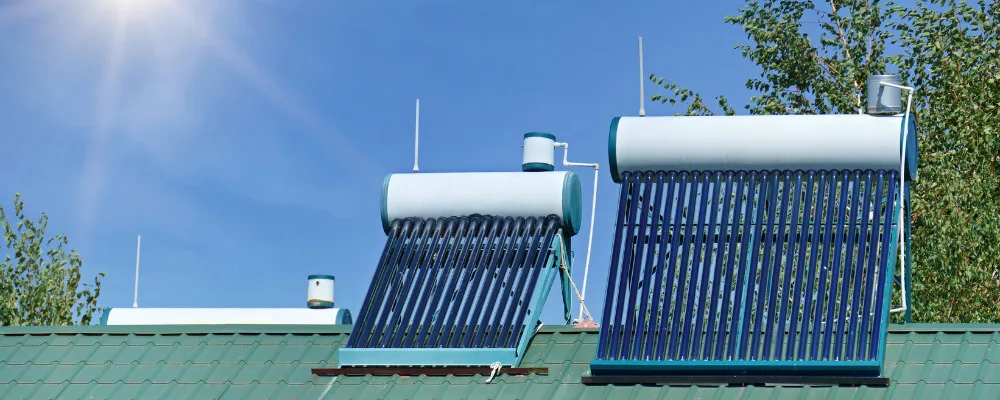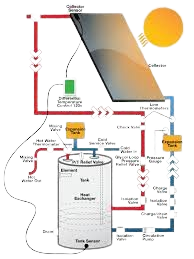solar water heating systems as a clean, cost-effective solution. By harnessing the sun’s natural heat, these systems provide an efficient way to meet daily hot water needs — all while reducing your carbon footprint.

With rising energy costs and increasing awareness of climate change, more homeowners and businesses are turning to solar water heating systems as a clean, cost-effective solution. By harnessing the sun’s natural heat, these systems provide an efficient way to meet daily hot water needs — all while reducing your carbon footprint.
Let’s explore how solar water heating systems work, their benefits, types, and whether they’re the right choice for your property.

A solar water heating system (SWHS) uses energy from the sun to heat water for domestic or commercial use. It typically consists of solar collectors that absorb sunlight and a storage tank to hold the heated water. These systems reduce the need for conventional water heaters powered by electricity or gas, helping save on utility bills.
In short: it’s hot water, powered by the sun.

Solar Collectors – Installed on rooftops, these panels absorb solar radiation.
Heat Transfer Fluid – In some systems, a non-freezing fluid flows through the collectors and transfers heat to the water via a heat exchanger.
Storage Tank – Heated water is stored in an insulated tank until needed.
Backup System – In colder climates or during cloudy days, a traditional heater may serve as a backup.
Depending on the design, solar water heating systems may be active (with pumps and controllers) or passive (relying on gravity and natural circulation).
Direct Circulation Systems: Water circulates directly through the solar collectors and into the home. Best for warm climates.
Indirect Circulation Systems: Use a heat-transfer fluid and heat exchanger. Suitable for colder regions.
Integral Collector Storage (ICS): Combines a storage tank and collector into one unit. Simple and affordable.
Thermosyphon Systems: Relies on gravity to move heated water from collector to tank. Highly reliable.

✅ Energy Savings
Solar water heaters can reduce your water heating bill by 50%–80%.
✅ Eco-Friendly
They help lower greenhouse gas emissions and dependence on fossil fuels.
✅ Low Maintenance
With few moving parts, most systems require only minimal annual servicing.
✅ Long-Term Investment
While the initial cost may be higher, payback periods are typically short — and savings continue for 20+ years.
✅ Incentives Available
Many governments offer tax credits, rebates, or subsidies for solar water heating installations.
Residential homes
Hotels and resorts
Hospitals and nursing homes
Apartment complexes
Commercial kitchens and laundries
Swimming pools
Whether it’s for personal or commercial use, if you need a consistent supply of hot water, a solar water heating system is a smart choice.

Roof space and orientation
Local weather conditions
Hot water usage volume
Backup heating source
Available government incentives
A professional assessment will help determine the right system type and size for your specific needs.
Solar water heating systems offer a practical way to reduce energy costs, protect the environment, and increase energy independence. Whether you’re upgrading your home or improving your business operations, investing in solar thermal technology is a step toward a more sustainable future.
The sun is an endless resource — and with a solar water heater, you're tapping into it every day.